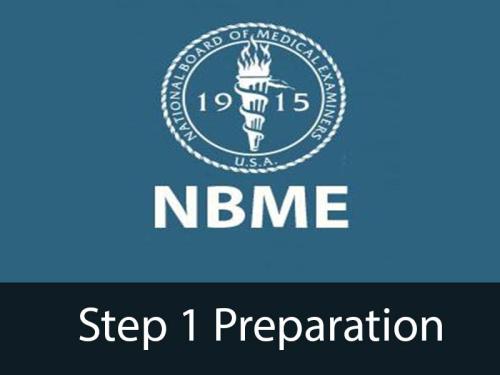Phase 2 is an exciting time full of anticipation for board exams and preparation for clerkships. There are several support systems in place over the summer and throughout the year to help students feel confident and prepared.
Summer Step 1 Preparation (optional):
Students are provided 3-5 weeks study modules to work with over summer. These modules are created with the need of various student populations in mind. Foundational material will be covered, and students will be given resources and practice questions similar to NBME board style questions.
Students will also be provided with videos where they will be taught to dissect and process NBME style questions, with the aim to de-code these questions so that they are better prepared for Step 1.
Students can choose to work on one or multiple modules as per their need and time availability. Each week peer tutors will have scheduled office hours.
PAL Tutors:
Once in medical school, students may find that previous methods of studying are no longer effective in producing positive results. For many students, this may be the first time they have faced the possibility of failing an exam or not keeping up with course material. The PAL program aims to support student success by providing the resources needed to improve academic performance. This service is available free of charge to current medical students who have been referred by the Office of Students Affairs and/or a Course Director.
PAL Tutors and T4 students also lead weekly group sessions to review and recap material learned during the week. These sessions are open to all students and dates, times and sessions recording are available on eMedley.
Need assistance in enhancing your learning strategies:
Please contact:
- Dr. Dolly Anadkat (danadkat@tulane.edu)
- Dr. Paula Majeau (pmajeau@tulane.edu)
- PAL tutor request

Step 1 Preparation and Dedicated Period
Step 1 is the first in a series of multiple board exams and has a reputation of being the hardest test you will take in your medical career. At the beginning of Step 1 dedicated time all students are given an NBME practice test (CBSSA). The score is treated as a baseline/diagnostic score that is used to create a detailed study schedule for the 6-8 weeks of dedicated time.
The day following the practice test, there is a group session to discuss score interpretation, planning and scheduling, and the importance of maintaining healthy study hygiene. Guidance and resources will be provided for sleep, nutrition, wellness, stress management and test anxiety.
During dedicated time there will be Step 1 review series designed to highlight high-yield material presented by professors and T4 tutors. These sessions will be interactive and provide opportunities to ask questions.
For planning, scheduling, and strategies as well as readiness discussion contact
- Dr. Dolly Anadkat (danadkat@tulane.edu)
- Dr. Paula Majeau (pmajeau@tulane.edu)
Step 1 Champions
Step 1 Champions is an initiative designed to foster a supportive, collaborative environment for USMLE Step 1 preparation. Our mission is to connect medical students with knowledgeable peer “Champions” who are available to answer questions, share study strategies, and offer guidance throughout the Step 1 journey.
Recognizing the stress and uncertainty that often accompany Step 1 preparation, this program aims to:
- Centralize trusted advice and study resources
- Reduce barriers to information
- Promote confidence and clarity
- Relieve anxiety through peer-to-peer support
General Guidelines for Step 1
A Step 1 preparation guidebook has been developed to provide a variety of information related to registration, scheduling, exam content guidelines, applying for accommodation as well as budget and resources with links. This could be a go to page for everyone one who is preparing for Step 1.
Accommodation Process for Step 1
Applying for accommodations on Step 1 requires prior planning. Students are advised to meet with the Learning Specialist before leaving for the summer after Phase 1.5 to discuss the process. Starting the application early ensures that it is complete and that NBME has the necessary time to process and approve their application. Using the summer months prior to Phase 2 allows students to focus on their classes when they return in the fall rather than worrying about the application.
A general timeline for application:
- May/June- meet with TUSOM Learning Specialist
- June/July/August - work on personal statement, gather evaluations, supporting documents, complete updated evaluation if needed.
- October/November - register for Step 1 and apply for accommodations.
- January/February - receive approved accommodations.
- February/March/April - dedicated time for Step 1
- March/April - take Step 1
Contact: Dr. Paula Majeau (pmajeau@tulane.edu)
Mindfulness and Learning In Medical School
Medical school is recognized as both a fulfilling and high stress period in a student's life. The basic science years when students are dealing with a large volume of information are a stressful time in and of itself; with the addition of Step 1 being pass-fail, the anxiety and burnout experienced by medical students is at an all-time high. The importance of wellness is increasingly being recognized by both students and medical school administrators. Various researchers have studied the effectiveness of a structured program on "mindfulness-based stress reduction" in medical students. Students who participated in these programs generally reported improvement in psychological wellbeing. Mindfulness research has shown remarkable effect on not only reducing stress but also enhancing cognitive function such as increased focus and attention, enhanced memory and retention, improved leaning, logical thinking, and decision making. Based on the results, students who have mindfulness incorporated in their curriculum could potentially reap benefits academically and personally.
Book an appointment with Dr. Dolly Anadkat (danadkat@tulane.edu) for individual session.
